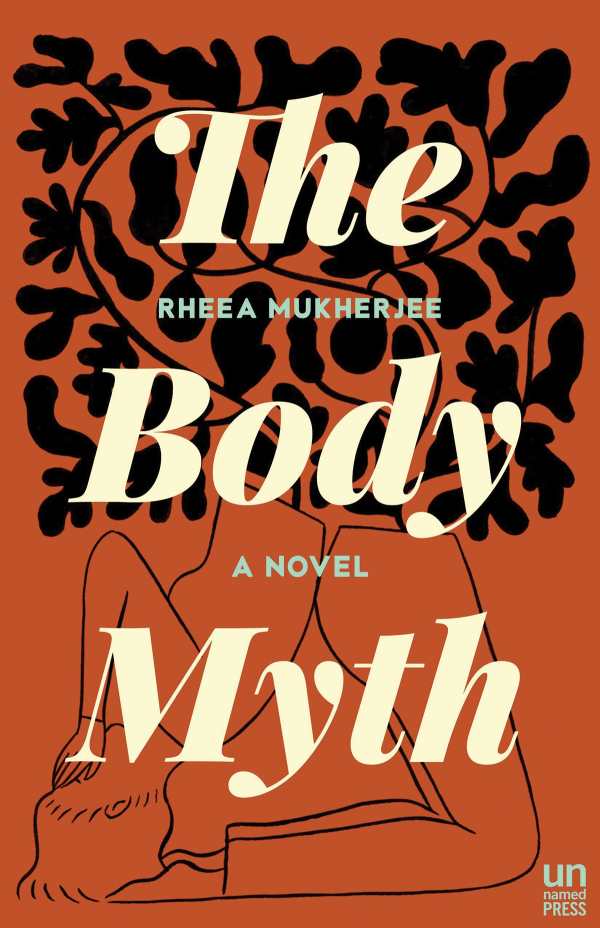The Body Myth
Witty, melancholic, and dramatic by turns, Rheea Mukherjee’s The Body Myth is a touching love story about misfits searching for togetherness, even if that togetherness might not be healthy for all concerned.
Set in Suryam City in modern-day India, the story is told through the eyes of Mira, a young widow weaned on radical thoughts and European literature. Half-jokingly labeled a communist in her day job as a high school English teacher, Mira is unattached and accustomed to being alone, until she literally stumbles upon Sara and her husband Rahil when Sara has a seizure in a local park.
Sara might have a magnetic personality and present herself as spiritually enlightened, but she’s also a frail hypochondriac, and the accommodating Rahil has been her enabler. Soon Mira finds herself falling for both of them, leading to a very unusual romantic triangle that threatens the trio’s core beliefs even as they search for happiness.
The Body Myth snakes its way through Mira’s personal history while she falls under the spell of Sara and Rahil. Mukherjee weaves a spell of her own, drawing us into Mira’s thoughts and fears through sure storytelling. The narrative accommodates both Eastern existentialism and Western thought, with influences as dissimilar as Doris Lessing and Sufism vying for Mira’s attention. In the process, we witness an India poised on the edge between change and tradition. But Mukherjee keeps the focus intimate, as Mira’s push-pull relationship with Sara and Rahil leads to some unexpected twists.
Although the story falters a bit in its final third, where the characters are rushed through several changes of heart and toward a resolution that’s not quite as affecting as what has gone before, The Body Myth is a compelling tale, rich in emotional undercurrents and empathy for its unconventional characters.
Reviewed by
Ho Lin
Disclosure: This article is not an endorsement, but a review. The publisher of this book provided free copies of the book to have their book reviewed by a professional reviewer. No fee was paid by the publisher for this review. Foreword Reviews only recommends books that we love. Foreword Magazine, Inc. is disclosing this in accordance with the Federal Trade Commission’s 16 CFR, Part 255.

